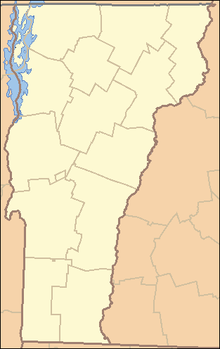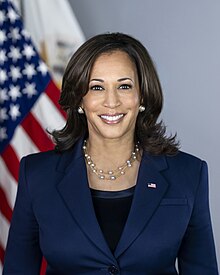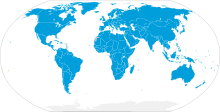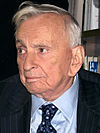Portal:Politics
| Main | Topics and categories | Tasks and projects |
The Politics portal
Politics (from Ancient Greek πολιτικά (politiká) 'affairs of the cities') is the set of activities that are associated with making decisions in groups, or other forms of power relations among individuals, such as the distribution of resources or status. The branch of social science that studies politics and government is referred to as political science.
It may be used positively in the context of a "political solution" which is compromising and non-violent, or descriptively as "the art or science of government", but also often carries a negative connotation. The concept has been defined in various ways, and different approaches have fundamentally differing views on whether it should be used extensively or in a limited way, empirically or normatively, and on whether conflict or co-operation is more essential to it.
A variety of methods are deployed in politics, which include promoting one's own political views among people, negotiation with other political subjects, making laws, and exercising internal and external force, including warfare against adversaries. Politics is exercised on a wide range of social levels, from clans and tribes of traditional societies, through modern local governments, companies and institutions up to sovereign states, to the international level.
In modern nation states, people often form political parties to represent their ideas. Members of a party often agree to take the same position on many issues and agree to support the same changes to law and the same leaders. An election is usually a competition between different parties.
A political system is a framework which defines acceptable political methods within a society. The history of political thought can be traced back to early antiquity, with seminal works such as Plato's Republic, Aristotle's Politics, Confucius's political manuscripts and Chanakya's Arthashastra. (Full article...)
Selected article
JFK is a 1991 American film directed by Oliver Stone. It examines the events leading to the assassination of President John F. Kennedy and alleged subsequent cover-up through the eyes of former New Orleans district attorney Jim Garrison (played by Kevin Costner). Garrison filed charges against New Orleans businessman Clay Shaw (Tommy Lee Jones) for his alleged participation in a conspiracy to assassinate the president, for which Lee Harvey Oswald (Gary Oldman) was found responsible by two Government investigations: the Warren Commission, and the House Select Committee on Assassinations (which concluded that there was another assassin shooting with Oswald). The film was adapted by Stone and Zachary Sklar from the books On the Trail of the Assassins by Jim Garrison and Crossfire: The Plot That Killed Kennedy by Jim Marrs. Stone described this account as a "counter-myth" to the "fictional myth" of the Warren Commission. The film became embroiled in controversy. Upon JFK's theatrical release, many major American newspapers ran editorials accusing Stone of taking liberties with historical facts, including the film's implication that President Lyndon B. Johnson was part of a coup d'état to kill Kennedy. After a slow start at the box office, Stone's film gradually picked up momentum, earning over $205 million in worldwide gross. JFK went on to win two Academy Awards and was nominated for eight in total, including Best Picture. The film was one of three films Stone made about the American Presidency, followed later by Nixon with Anthony Hopkins in the title role and W. with Josh Brolin as George W. Bush.
Featured picture

Photo taken by a Lockheed U-2 spy plane of the San Cristobal MRBM launch site in Cuba, November 1962, after the Cuban Missile Crisis. Although this image was taken days after the crisis had ended (October 28), this image has become iconic of the crisis to the point where it is often cited incorrectly as having been taken during the crisis.
Selected quote
Selected biography
Rebeca Elvira Delgado Burgoa (born 1 June 1966) is a Bolivian academic, lawyer, magistrate, and politician who served as president of the Chamber of Deputies from 2012 to 2013. As a member of the Movement for Socialism, she served as a party-list member of the Chamber of Deputies from Cochabamba from 2010 to 2014. Prior to her election to the lower chamber, Delgado served as a party-list member of the Constituent Assembly from Cochabamba from 2006 to 2007 and was vice minister of government coordination from 2008 to 2009. Delgado's near-decade-long political and legislative tenure was preceded by a fifteen-year career as a public servant, during which time she worked as a public defender and examining magistrate, was a magistrate on the Departmental Electoral Court of Cochabamba, and served as the Ombudsman's Office's delegate for the fight against corruption in Cochabamba.
Did you know (auto-generated) -

- ... that Sears heiress Edith Rosenwald Stern organized a women's broom brigade against political corruption in New Orleans?
- ... that Philipp Tanzer has been an army medic, artist, firefighter, hairdresser, massage therapist, festival organiser, political candidate and gay porn star?
- ... that no single political party has a mandate in a coalition government?
- ... that Iraqi poet Kazim al-Samawi spent more than half his life in political exile and was called "The Sheikh of the Exiles"?
- ... that after being arrested for organizing a general strike in 1920, S. Girinis was sent to the Soviet Union following a Soviet-Lithuanian exchange of political prisoners?
- ... that Poles who fought in the Russian Partition during the January Uprising were detained as political prisoners in Magdeburg and Graudenz, Prussia, even though the uprising never crossed the border?
More did you know...
- ...that the Voting Rights Act of 1965 banned literacy tests as a voting qualification in the U.S.?
- ...that politicians discuss the ways in which they and their families have suffered because of Oprahization?
- ...that Democratic and Republican plans for the 2012 United States federal budget both focus on deficit reduction, but differ in their changes to taxation, entitlement programs, and research funding?
- ...that Conservative Party candidate Bernard Trottier won a seat in the 41st Canadian Parliament by defeating the incumbent Leader of the Liberal Party of Canada in the 2011 federal election?
- ...that Caedwalla of Wessex conquered southeast England during his brief 7th century reign?
- ...that tiao-kuai is the quasi-federal administration system in China?
In this month
- April 1, 1979 – Iran's government becomes an Islamic Republic by a 98% vote, overthrowing the Shah officially.
- April 9, 1948 – the period known as La Violencia begins with the assassination of Colombian Liberal Party leader Jorge Eliécer Gaitán. For the next ten years Liberals, Communists and Conservatives would fight each other in the conflict.
- April 9, 2003 – Government of Saddam Hussein overthrown by American forces in Iraq.
- April 19, 2006 – Han Myung-sook becomes South Korea's first female Prime Minister.
- April 24, 2005 – Presidential elections in Togo return Faure Gnassingbe to power two months after he was installed by the military following the death of his father, Gnassingbé Eyadéma.
- April 28, 1937 – Saddam Hussein, the President of Iraq was born.
- April 30, 1945 – Adolf Hitler and his wife Eva Braun, commit suicide as the Red Army approached the Führerbunker in Berlin. Karl Dönitz succeeds Hitler as President of Germany; Joseph Goebbels succeeds Hitler as Chancellor of Germany.
News and Current events
- August 11: 4 local government areas in New South Wales, Australia locked down after COVID-19 case
- August 11: Australia: AstraZeneca vaccine access expanded by Victorian government
- August 1: Australia: Victorian lockdown lifted
- July 29: Tunisia's president dismisses prime minister, suspends parliament
- July 25: Australia: Wikinews interviews Reg Kidd, mayor of the City of Orange, about COVID-19 lockdown and local government
- July 23: South Australia enters week-long lockdown to contain COVID-19 Delta variant spread
- July 21: Technological University Dublin senior lecturer Dr Lorcan Sirr speaks to Wikinews on housing market in Ireland
- July 21: Three rural councils in New South Wales, Australia enter 7-day lockdown
- July 21: Australia: Victoria lockdown extended by a week with 85 active cases recorded
- July 15: California governor signs new state budget, eligible Californians to get stimulus payments
Topics and categories
General images
Related portals
Associated Wikimedia
The following Wikimedia Foundation sister projects provide more on this subject:
-
Commons
Free media repository -
Wikibooks
Free textbooks and manuals -
Wikidata
Free knowledge base -
Wikinews
Free-content news -
Wikiquote
Collection of quotations -
Wikisource
Free-content library -
Wikiversity
Free learning tools -
Wiktionary
Dictionary and thesaurus



























































